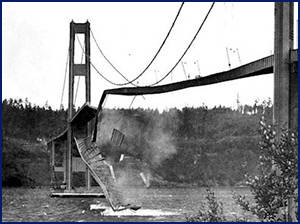Okay, so let's say that Piaget, Vygostky, Papert, and others were right, and that knowledge is constructed by our experiences from the world and one another.
And, let's say that apart from being a powerful delivery system for gossip and pornography, that the Internet allows, facilitates, and develops these types of learning interactions.
You should look at the new tool from the Smithsonian, Smithsonian Commons, which lets all of this happen powerfully.
(Thanks to the folks at O'Reilly Radar for this!)
Wednesday, August 11, 2010
Sunday, May 9, 2010
It Looks Like Learning to Me
I just watched this great video of a DJ, Rana Sobhany, demonstrating her new set up featuring 2 iPads.
It was certainly great to hear her talk about how she works, and then seeing her work (at least in her house). As I was watching, it made me think about her learning process and how turned on she was. The technology is nothing but a way for her to express herself.
So, I thought of my students.
Anyway, check it (and her) out.
It was certainly great to hear her talk about how she works, and then seeing her work (at least in her house). As I was watching, it made me think about her learning process and how turned on she was. The technology is nothing but a way for her to express herself.
So, I thought of my students.
Anyway, check it (and her) out.
Tinkering
Thanks to Cory at Boing Boing, here's a video of a presentation by Geever Tulley on his work. He teachers kids to make things. He even has a book, 50 Dangerous Things You Should Let Your Children Do.
Check it out:
Check it out:
Tuesday, April 27, 2010
The Commonplace Book and Education
I just finished reading this piece by Steven Johnson. He posted a talk he recently gave at Columbia's School of Journalism on his blog.
He is talking about Commonplace books:
And, as usual, it made me think about the students in my classroom, and how I work to expose them to lots of different things, to try to accomplish the same thing.
He is talking about Commonplace books:
In its most customary form, “commonplacing,” as it was called, involved transcribing interesting or inspirational passages from one’s reading, assembling a personalized encyclopedia of quotations. It was a kind of solitary version of the original web logs: an archive of interesting tidbits that one encountered during one’s textual browsing.He then goes on to talk about the web, with all of its inherent "linkiness" (my term) as a related concept, and one that allows the text to become productive through all of its connections to other texts, other meanings, other purposes, other agendas.
And, as usual, it made me think about the students in my classroom, and how I work to expose them to lots of different things, to try to accomplish the same thing.
The reason the web works as wonderfully as it does is because the medium leads us, sometimes against our will, into common places, not glass boxes. It’s our job—as journalists, as educators, as publishers, as software developers, and maybe most importantly, as readers—to keep those connections alive.
Labels:
blogging,
classroom 2.0,
education 2.0,
innovation
Thursday, April 22, 2010
Dan Meyer and Developing Patient Problem Solving
I just saw this video (thanks to O'Reilly Radar). It features a math teacher, Dan Meyer, talking about how to interrupt the impatient problem solving fostered by textbooks and developing patient problem solving in his (and our) students.
The talk is amazing. I especially appreciated his take on using media and social media to create powerful learning opportunities.
And check out Dan's blog.
The talk is amazing. I especially appreciated his take on using media and social media to create powerful learning opportunities.
And check out Dan's blog.
Labels:
classroom 2.0,
dreams,
edtech,
education,
education 2.0
Saturday, April 10, 2010
Blogging in a Living Room in Cuba
Yesterday morning, NPR ran this story about a woman in Cuba who has established a school -- she calls it a blogging academy -- in her living room.
Twice a week, Yoani Sanchez transforms the living room of her small Havana high-rise apartment into what she calls the Blogger Academy. About 30 students cram inside to learn how to use WordPress, Wikipedia and the other tools of a digital revolution that Cuba's government views warily.
Her desire to communicate, and empower others to communicate in politically difficult circumstances is so great that she has a system for doing so without an internet connection of her own.
It made me think of what learning can look like where there is something really at stake.
You can listen to/read about the story here.
And here is a link to her blog.
Labels:
blogging,
collaboration,
digital storytelling,
innovation,
npr
Tuesday, April 6, 2010
Monday, April 5, 2010
Clay Shirky and Complexity
Okay, first, it's been a million years since the last post. I have been involved with my doctoral research and generally way too busy. Nevertheless, it seems time to get back to work.
Thanks to Cory Doctorow over at BoingBoing, I found this article/broadside by Clay Shirky. He talks about complex systems generating more complexity until there is a collapse:
When ecosystems change and inflexible institutions collapse, their members disperse, abandoning old beliefs, trying new things, making their living in different ways than they used to. It’s easy to see the ways in which collapse to simplicity wrecks the glories of old. But there is one compensating advantage for the people who escape the old system: when the ecosystem stops rewarding complexity, it is the people who figure out how to work simply in the present, rather than the people who mastered the complexities of the past, who get to say what happens in the future.You can read the whole piece here.
It left me wondering, how much does this apply to education?
Subscribe to:
Comments (Atom)


